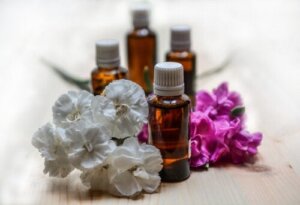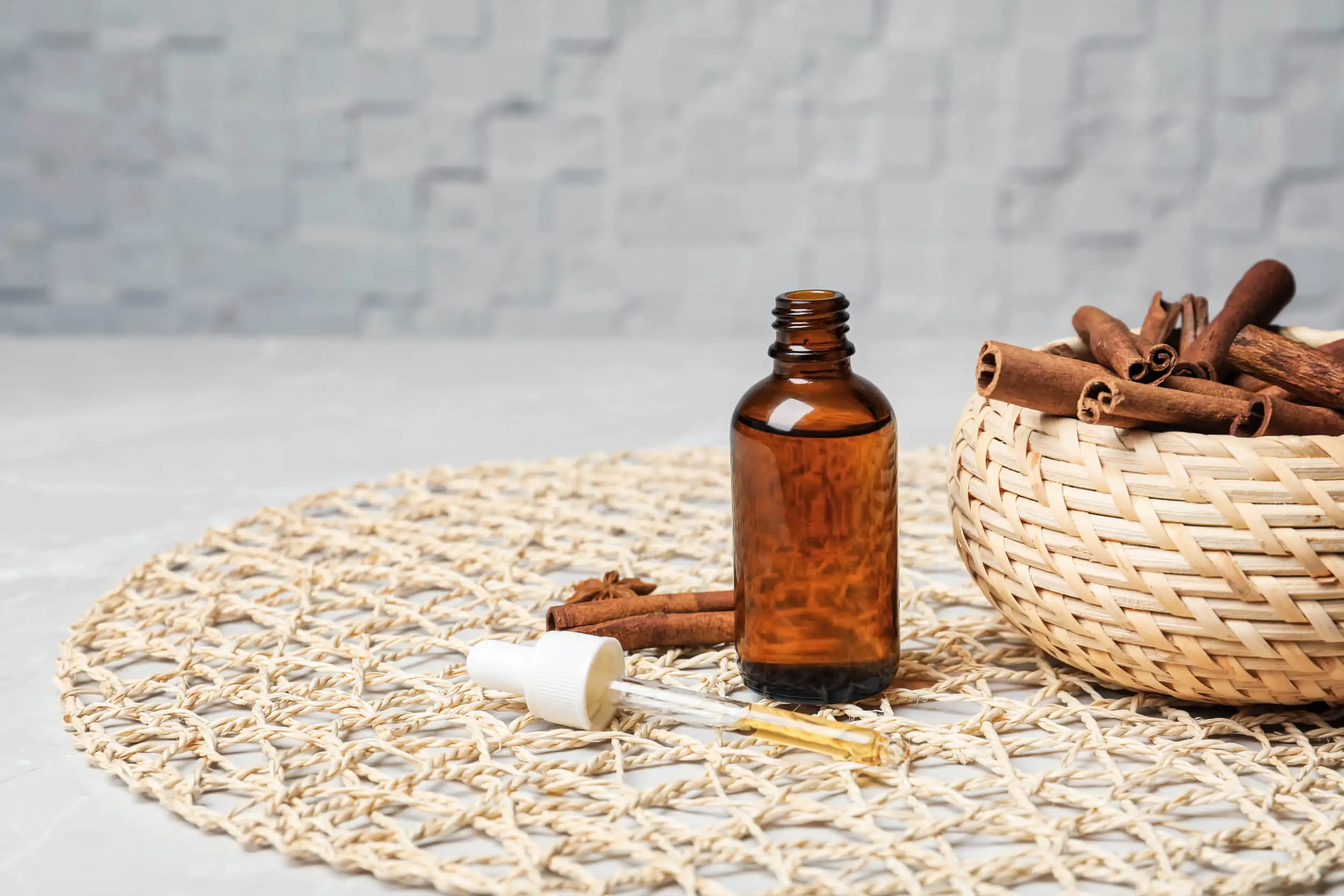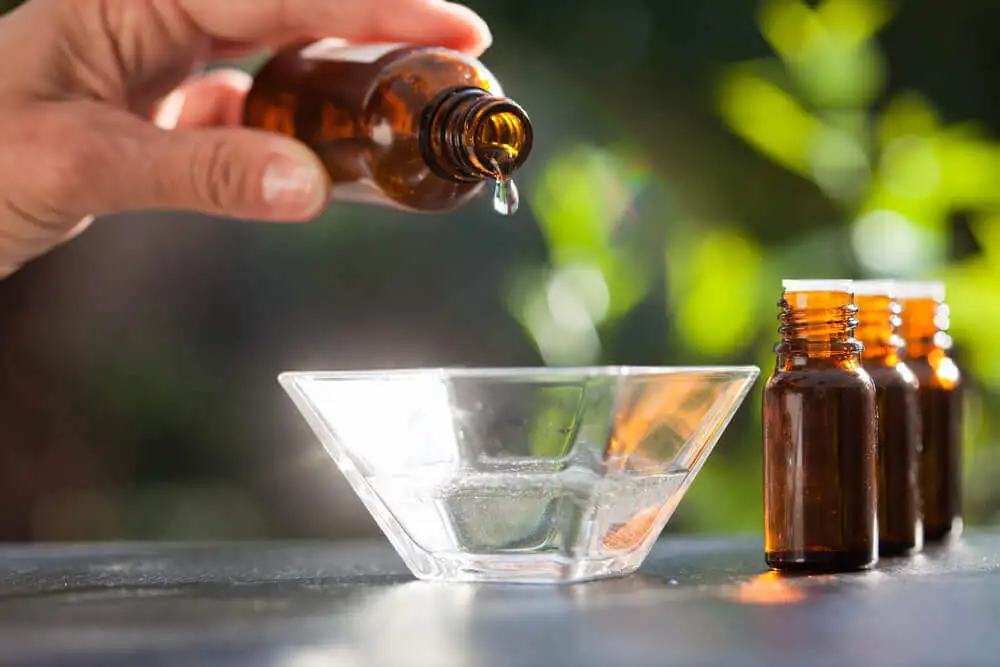20 Essential Oils You Should Have During the Winter


Reviewed and approved by the pharmacist Franciele Rohor de Souza
Essential oils can be a great help during the winter. These substances have certain bioregulatory properties, and some of them can help to stimulate the body’s natural defenses.
During the winter, it’s cold, windy, and with changes in atmospheric pressure and humidity levels. These and other factors exacerbate certain health conditions. In particular, such is the case for respiratory conditions, allergies, and conditions that have to do with rheumatic pains.
Likewise, it’s not uncommon that during these months of cold and time indoors mood disorders increase. That’s why there are fortunately also essential oils that help to restore emotional balance. In general, aromatherapy is an excellent choice for this time of year.
The benefits of essential oils
Essential oils have been used for thousands of years. Eastern cultures, in particular, have always given them great importance. They also play a very important role in Ayurveda.
These substances are essential in aromatherapy. It’s believed that by stimulating the olfactory receptors, messages are sent to the limbic system via the nervous system.
Also, some essential oils help to eliminate microorganisms. Therefore, they are of great help in preventing and fighting infections during winter.
Essential oils for winter
In general, sweet, warm, and acidic scents are the best for winter. The key is that each person chooses the one he/she likes the most, since this enhances their effect. Among the most advisable are the following:
1. Cloves
Clove essential oil is warm and invigorating, with relaxing properties. It’s recommended to relieve pain sensations and stimulate the digestive system.
2. Cinnamon
Cinnamon has comforting and energizing effects. It promotes well-being and can help fight certain infections. It may also help favor the regulation of emotions.

3. Orange essential oil
Orange essential oil is one of the best mood elevators. It’s sweet, warm, and light. It’s very suitable for those who experience frequent sadness this time of year.
We think you may also enjoy reading this article: Helichrysum Essential Oil: Possible Benefits and Precautions of Use
4. Essential oils for winter: Ginger
Another essential oil that is warming and invigorating is ginger. It’s a powerful tonic and has anti-inflammatory properties. It also helps to combat problems in the digestive system.
5. Peppermint
Peppermint essential oil not only invigorates, but also helps clear nasal passages. It may also relieve headaches and migraines. It also may help reduce appetite, increases energy, and serves to spice up baked goodies.
6. Sandalwood essential oil
Sandalwood has a very pleasant aroma and is especially indicated for relaxation. This is another essential oil that acts as an emotional regulator. It’s also a natural fungicide.
7. Oregano
Although oregano is used more as a seasoning, it’s also one of the most valued essential oils for winter. It has antibacterial and antiviral properties.
8. Essential oils for winter: Tea tree
This is one of the classic essential oils, and no wonder. It can help to soothe skin irritation, but beware of its side effects on the epidermis. It’s also excellent for treating ear infections, cold sores, and preventing head lice.
9. Eucalyptus
Eucalyptus essential oil is also antiviral and antibacterial. It’s also often used as an expectorant. It helps to keep the environment clean.
10. Thyme
Thyme is a natural antibiotic. It also helps to eliminate some fungi and to stimulate the nervous and immune systems. It may also help the healing of wounds.
11. Pine
This is another of the classic essential oils that can be used throughout the year, but in winter, it’s particularly suitable. It purifies the environment and promotes emotional balance.
12. Lavender essential oil
This is another of the essential oils that cannot be missing in the home. Lavender has always been considered a natural mood stimulant. It’s ideal for those who have trouble falling asleep.
13. Bergamot
Bergamot essential oil is very suitable for fighting infections due to its antibacterial, antiparasitic, and antiseptic properties, bergamot can act against depression and reduce stress.
14. Rosemary
Rosemary is one of the essential oils to be used as an expectorant and anti-inflammatory. It also acts to improve mood, stimulate memory and combat mental fatigue.
15. Essential oils for winter: Sage
Sage essential oil helps to improve mood. It’s indicated for those who show signs of sadness or decay. It also helps to purify the environment.
16. Yellow lemon
This is one of those multipurpose essential oils. It’s analgesic with anti-inflammatory properties. It also helps to treat digestive system problems and facilitates healing.
17. Ravintsara
Ravintsara essential oil is an excellent choice to put in an aroma diffuser in those places with high concurrence. It’s expectorant and may help stimulate lung function.
18. Incense
This oil has an important effect on the nervous system. In particular, it can help to manage states of anger or anxiety. It also allegedly has tonic, diuretic, and digestive effects.
19. Douglas fir
This is one of the best fragranced essential oils. It’s indicated for those who feel low in energy and present episodes of stress.
20. Myrrh
Myrrh is an essential oil that’s often used to combat states of distress. It has also been used for centuries to restore freshness to the skin and combat skin irritations.
Like this article? You may also like to read: Bergamot Essential Oil: Benefits and Possible Side Effects
Uses and precautions
The most common way to use essential oils is to put some of them in an aroma diffuser to inhale their fragrance and, with it, enjoy their properties. They can be combined with each other and the ideal is that each person finds the mixture that they like best.
You can also put a few drops of these oils in the bathtub and enjoy them during a bath. Likewise, it’s common to use them in steam baths.
It’s also highly recommended to use them in massages. These can be done on the soles of the feet, chest, temples, ears, or near the nostrils.
However, they should not be ingested and should not be allowed to come into direct contact with the mucous membranes of the body. If any irritation occurs on contact with the skin, it’s best to discontinue use immediately.

Essential oils for winter require caution when using them
Although essential oils rarely cause side effects or problems, it’s best to always consult a physician before using them. There are certain health conditions that may counterindicate their use.
Likewise, it’s also important to be familiar with each product and its possible uses and side effects. For instance, some essential oils show reactions when exposed to sunlight. Others may cause allergic reactions. Although essential oils are natural, this does not mean that they are harmless.
All cited sources were thoroughly reviewed by our team to ensure their quality, reliability, currency, and validity. The bibliography of this article was considered reliable and of academic or scientific accuracy.
- Maraví Inga, G. G. (2012). Efecto antibacteriano y antifúngico del aceite esencial de Mentha piperita (menta), Origanum vulgare (orégano) y Cymbopogon citratus (hierba luisa) sobre Streptococcus mutans ATCC 25175, Lactobacillus acidophilus ATCC 10746 y Candida albicans ATCC 90028.
- Alzate, N. A. G. (2009). Evaluación preliminar de la actividad fungicida de los aceites esenciales de eucalipto (Eucalyptus tereticornis, Myrtaceae) y cáscara de naranja (Citrus sinensis, Rutaceae) sobre algunos hongos fi lamentosos. Revista Colombiana de Ciencia Animal, 1(4).
- BANDONI, A. L., Retta, D., LIRA, P. M. D. L., & van BAREN, C. M. (2009). ¿Son realmente útiles los aceites esenciales? Boletín Latinoamericano y del Caribe de Plantas Medicinales y Aromáticas, 8(5), 317-322.
- de Souza Prestes, Luciana, et al. “Evaluación de la actividad bactericida de aceites esenciales de hojas de guayabo, pitango y arazá.” Revista Cubana de Plantas Medicinales 16.4 (2011): 324-330.
- Santesteban Muruzábal, R., et al. “Efectos secundarios de la aplicación tópica de un aceite de esencial: dermatitis alérgica de contacto a aceite de árbol de té.” Anales del Sistema Sanitario de Navarra. Vol. 38. No. 1. 2015.
- Juliani, Hector, et al. “Searching for the real Ravensara (Ravensara aromatica Sonn.) essential oil.” Perfumer & flavorist 30 (2005): 60-65.
This text is provided for informational purposes only and does not replace consultation with a professional. If in doubt, consult your specialist.








